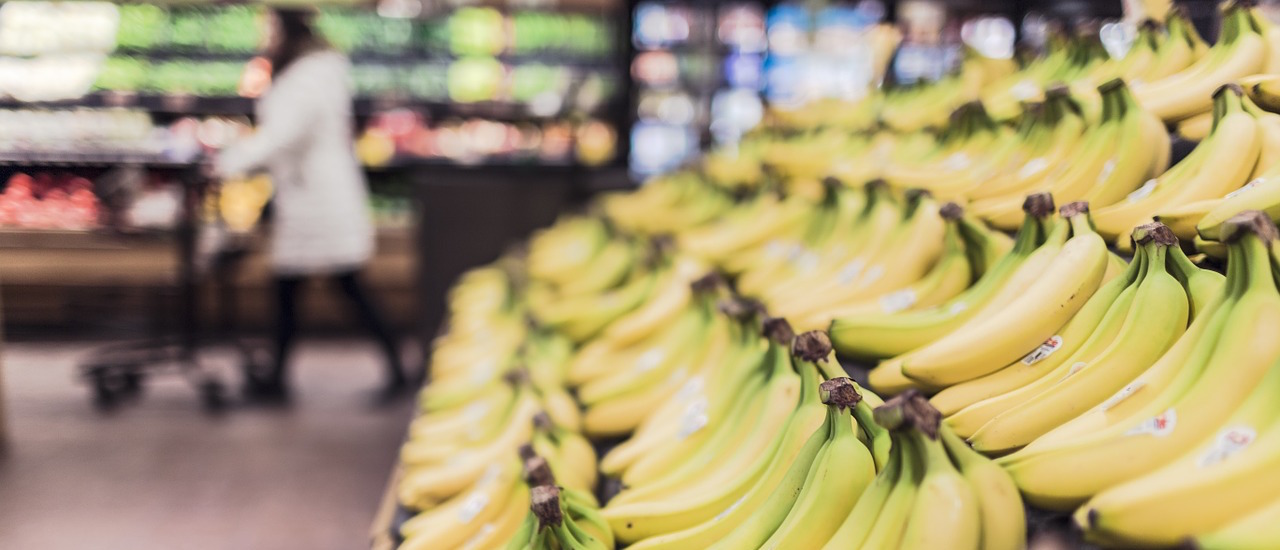A U.K. bound boat from Ecuador could have four million bananas on board and some other cargo as well. After docking, the bananas have a radiation check, maybe a customs inspection, and then they head to a ripening warehouse for their ethylene fix. Like Goldilocks, the ripening rooms have to be just right. Too warm and bananas get mushy. Too cold and they are gray and rigid.
There actually is a ripeness chart. A seven is a banana wholesaler’s nightmare:
 Where are we going? To banana tariffs,
Where are we going? To banana tariffs,
Banana Wars
the U.S.
During the 1990s, the EU used a system of tariffs and quotas to support the banana growers from 12 of its former colonies in Africa, the Caribbean, and the Pacific (ACP). Their main target was Chiquita. As the U.S.-based company that controlled close to 40% of the EU’s banana market in 1990, Chiquita soon saw its EU exports plunge. The reason? In 1993, the EU divided its banana importers. If you were not an ex-colony, then your bananas were taxed.
The U.S. sought to support Chiquita by filing a WTO complaint with five other countries. From the beginning the WTO agreed with the U.S. and even said it could retaliate if the EU did not eliminate its trade barriers. So, when the EU ignored the WTO decision, the U.S. did retaliate. By 1999, EU exports that ranged from French handbags to Italian Pecorino cheese were slapped with high tariffs that reduced U.S. demand.
In 2001, the U.S lifted its punitive tariffs after the EU said it would phase out the quotas. But they continued negotiating and finally nailed an agreement in 2009. As for the tariffs, during the next decade, they gradually went down.
the U.K.
When it left the EU, the U.K. was supposed to continue the tariffs on the larger exporters. Now they say they might not. No longer in the EU the UK could diminish its banana trade with African plantations. Currently at 11.5 percent of the U.K. banana market, a reduction could impact 80,000 African jobs.
Our Bottom Line: Banana Tariffs
Ongoing U.K. talks with Columbia, Ecuador, and Peru could eliminate the legacy of EU tariffs that favored Ghana, Cameroon, and Ivory Coast. Already the U.K. has lowered tariffs on bananas from Mexico and Peru. Freed from EU obligations, new U.K. trade policies will increase the current Latin American two-thirds share with cheaper bananas. As a result, now because of lower tariffs and previously from supermarket discounting, the banana might continue to retain its 1990 price of 115p a kilo.
So yes, through the banana, we can see how tariffs can be weapons.
My sources and. more: Thanks to Ian Bremmer’s GZero for inspiring today’s post. From there The Week had more of the story. Then, I had to check banana ripening warehouses and banana imports. But most interesting 99% Invisible detailed how cargo ships chill bananas.
And finally, we should note that a banana (and a pumpkin and an avocado) is really a berry. (And many of today’s banana facts were from a previous econlife post.)






